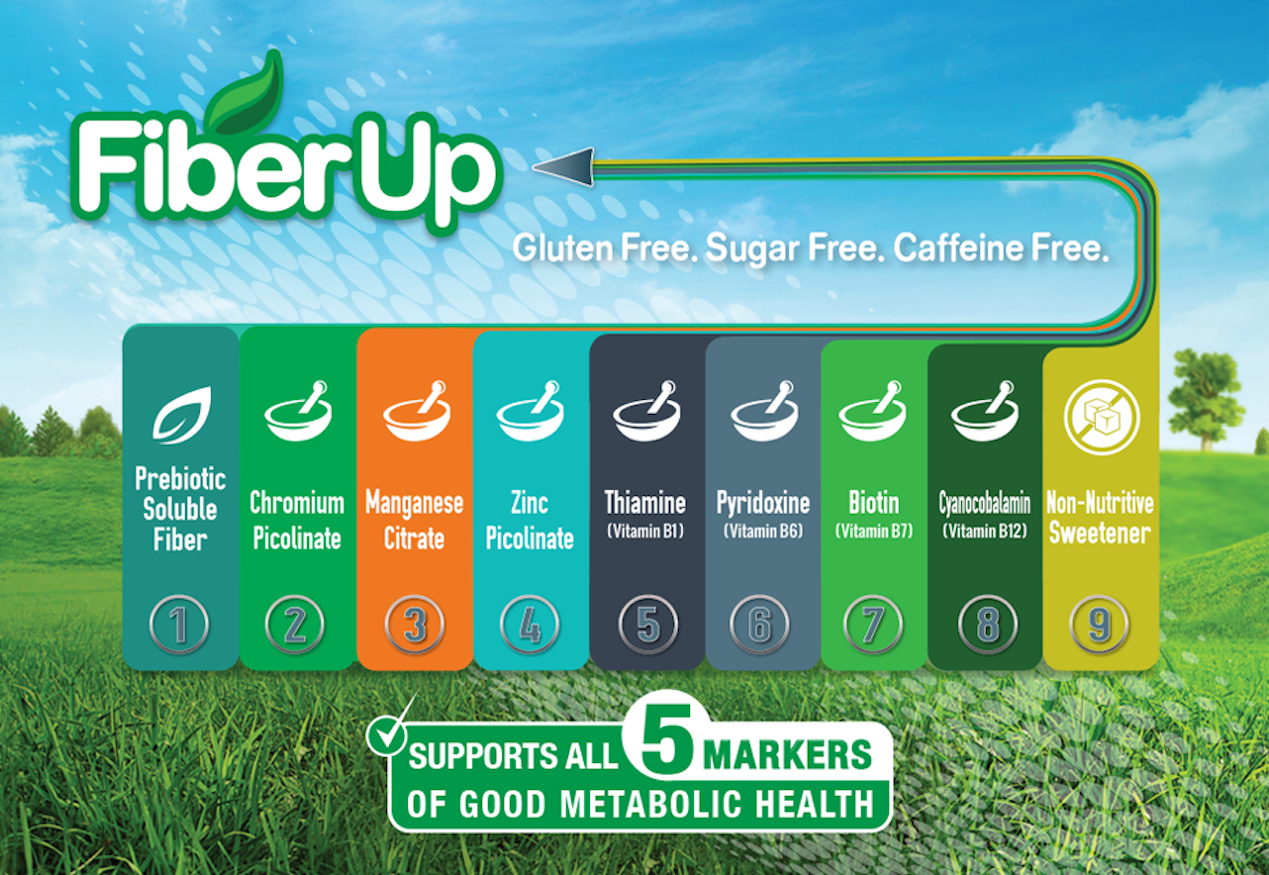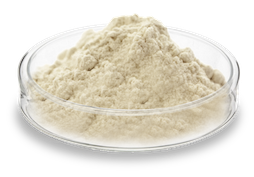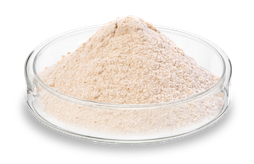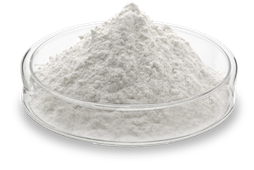Fiber Up® is enriched with a special form of soluble fiber which, clinical data indicates, supports all five markers of good metabolic health. Fiber Up® reduces the body's metabolism of dietary sugars and fats. In this way, Fiber Up® may help moderate after-meal increases in blood sugar, and lipids such as cholesterol and triglycerides. Drink Fiber Up® before or with all meals, and instead of snacks.
Fiber Up® drink mixes are surprisingly delicious, but formulated with no sugar (and no added sugar) and 100% natural flavors. Fiber Up® drink mixes are suitable for carbohydrate restricted diets, such as keto, low calorie diets and suitable for diabetics. Each serving of Fiber Up® has less than 10 calories. Fiber Up® is sugar free, caffeine free (the tea mixes are decaffeinated) and gluten free.
The physiological impacts of the ingredients in Fiber Up® have been investigated in clinical studies published in scientific journals archived at the US National Library of Medicine website, curated by the National Institutes of Health (NIH), or in research papers published by other credible sources of information, such as the American Diabetic Association and American Heart Association.

The clinical studies linked below are presented for consumer information regarding the physiological impacts of soluble fiber and the other ingredients in Fiber Up®. Fiber Up® is a nutritional beverage and is not intended to diagnose, treat, cure, or prevent disease and the Food and Drug Administration has not evaluated Fiber Up® with respect to the data, or any conclusions reached, in the clinical studies presented below.
Soluble Fiber

Fiber Up® is blended with a unique form of soluble fiber, which more than two decades of clinical data indicates, may help slow absorption of dietary sugars and fats; reduce post-prandial blood glucose levels (improving glycemic response); and help maintain digestive health. To learn more, please read the following clinical studies sourced from the NIH website:
Dietary fiber: a meta-analysis
Beneficial effects of high dietary fiber intake
Fiber facts: benefits and recommendations
Bioavailable Mineral - Chromium Picolinate

High bioavailability trace minerals are more effective because they are more easily absorbed in the body. In addition to being an essential mineral for many aspects of good health, Chromium Picolinate has a relationship to glucose metabolism. To learn more, please read the following Fact Sheet prepared by the Office of Dietary Supplements of the NIH plus an additional clinical study sourced from the NIH website:
Chromium Dietary Supplement Fact Sheet
Chromium Picolinate and Biotin (impact on glucose metabolism)
Bioavailable Mineral - Manganese Citrate

High bioavailability trace minerals are more effective because they are more easily absorbed in the body. Manganese is an essential mineral in a number physiological processes, including glucose metabolism. To learn more, please read the following clinical study sourced from the NIH website:
Manganese (glucose and lipids metabolism)
Bioavailable Mineral - Zinc Picolinate

High bioavailability trace minerals are more effective because they are more easily absorbed in the body. Zinc is an essential mineral in a number of physiological processes including in its impact upon blood glucose, triglyceride and cholesterol levels. To learn more, please read the following clinical study sourced from the NIH website:
Zinc supplementation in prediabetes
Vitamin B1 (Thiamine)

Vitamin B1 is also known as Thiamine. To learn more, please read the following clinical study sourced from the NIH website, which is representative of a body of research investigating the (often beneficial) relationship between glucose metabolism and Thiamine:
Vitamin B6 (Pyridoxine)

Vitamin B6 is also known as Pyridoxine and is important for good health. To learn more, please read the following Fact Sheet prepared by the Office of Dietary Supplements of the NIH:
Vitamin B6 Dietary Supplement Fact Sheet
Vitamin B7 (Biotin)

Vitamin B7 is also known as Biotin and is important for good health. Biotin also has a relationship to glucose metabolism. To learn more, please read the following clinical study sourced from the NIH website:
Chromium Picolinate and Biotin (impact on glucose metabolism)
Vitamin B12 (Cyanocobalamin)

Vitamin B12 is important to good health and additionally, B12 deficiency is associated with the use of the prescription drug metformin. To learn more, please read the following clinical study sourced from the NIH website:
Vitamin B supplementation and diabetes
Non-Nutritive Sweetener (Sugar Free)

All Fiber Up® Drink Mixes utlize a non-nutritive sweetener which has no impact upon blood glucose levels and is considered safe by the American Diabetes Association and American Heart Association. Please read following article sourced from the American Diabetes Association:
An overview of the safety of sucralose
Why is Fiber Up® Caffeine-Free?
The negative impact of caffeine upon post-prandial glucose metabolism is not fully appreciated. Fiber Up® Drink Mixes use only decaffeinated teas and are caffeine free. Please read following article sourced from the American Diabetes Association regarding caffeine's impact on glucose metabolism:
